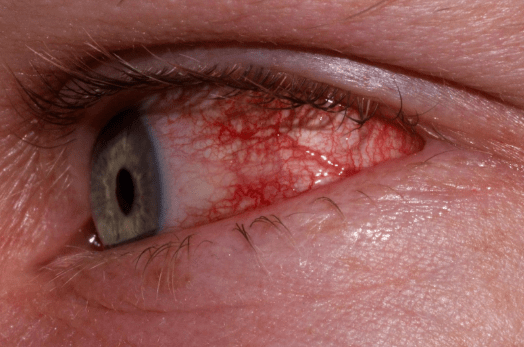When allergy occurs in the eye, it is called allergic conjunctivitis. The most frequent symptoms of allergic conjunctivitis are itching, watering, and redness. Many patients will also experience nasal symptoms. The first step toward relief of eye allergy is proper diagnosis.
Unlike pink eye, known as infectious conjunctivitis, allergic conjunctivitis is a reaction to allergens that get into the eye, and is not contagious. Allergic conjunctivitis usually occurs in both eyes instead of in just one. Irritants can cause similar symptoms, but this is not considered an allergic reaction.
Allergies develop when the immune system overreacts to something in the environment that is normally considered harmless. Common triggers for allergic conjunctivitis include pollen from trees, grasses, weeds, animal dander, and dust mites. Skin or blood testing can determine which allergens are affecting you.
Treatment of allergic conjunctivitis includes identification and avoidance of the allergen(s), medication to suppress symptoms, and, for some patients, desensitization to the allergen, called immunotherapy. Medication regimens are individualized to each patient. Desensitization is also individualized to each patient, as the specific mix of allergens affecting that patient are used. For those wanting to avoid allergy shots, desensitization can also be achieved by sublingual dosing (drops under the tongue).

